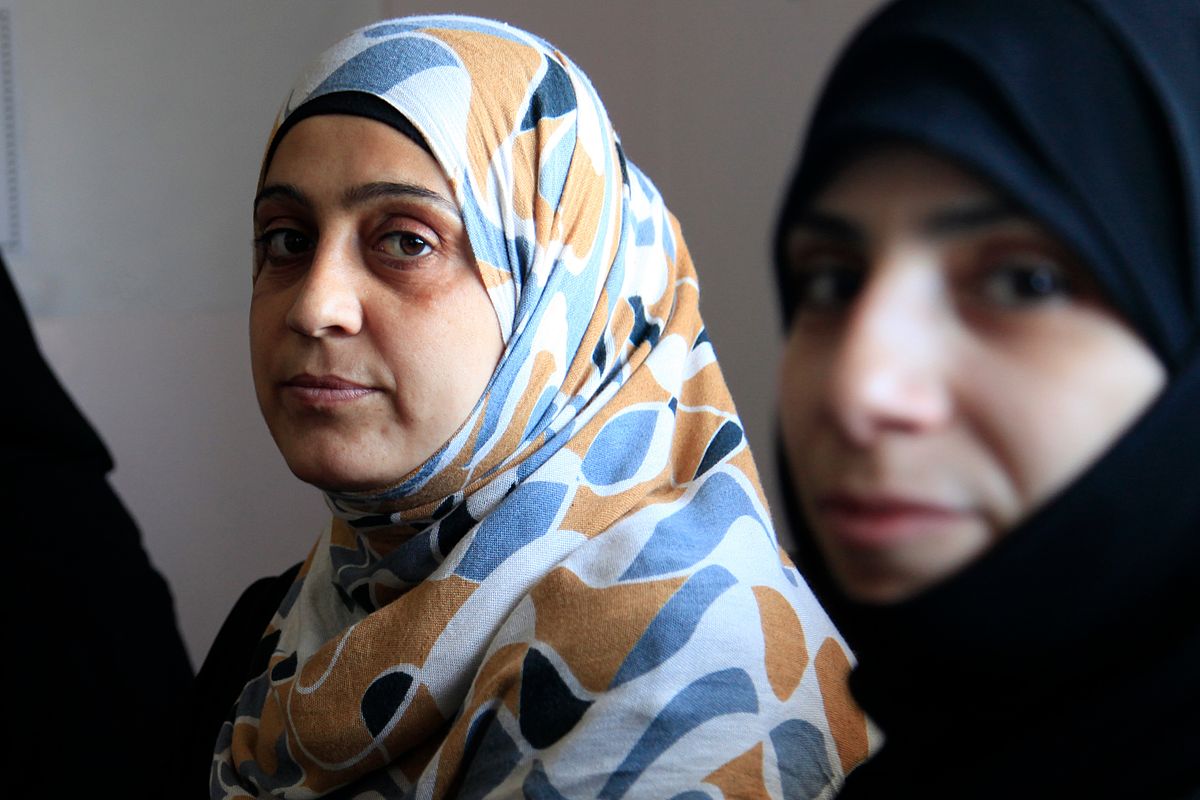HIV/AIDS in Syria
 Health care in Syria has experienced significant disruption due to the ongoing civil war, which first began in March 2011. The conflict has resulted in a cumulative diminishment of the health care system to a partly-functioning institution. Medical facilities and hospitals have been targeted, with nearly 15 million people in desperate need of medical attention.
Health care in Syria has experienced significant disruption due to the ongoing civil war, which first began in March 2011. The conflict has resulted in a cumulative diminishment of the health care system to a partly-functioning institution. Medical facilities and hospitals have been targeted, with nearly 15 million people in desperate need of medical attention.
Despite HIV prevalence remaining low in Syria and just 762 people diagnosed with HIV/AIDS in Syria between 1987 and 2011, the Middle East is one of the only regions in the world where HIV/AIDS infection is spiking. This spike can be attributed to factors such as increasing rates of poverty, labor migration and human trafficking, which can potentially manifest in an HIV/AIDS epidemic.
Vulnerable, marginalized groups such as female sex workers and intravenous drug users are at a significantly higher risk of contracting HIV than the general population. Therefore, the response to HIV/AIDS in Syria has to focus on these groups, as their behaviors have the potential to kickstart an epidemic.
Health Care in Syria
The Syrian health care system impairs many citizens’ ability to access medical professionals and treatment. As a result of the war, approximately 70% of health care professionals have left the country. Similarly, 50% of health care facilities have been obliterated. Consequently, Syria lacks the necessary staff, facilities, treatment options, funding and capacity to manage health problems effectively. This shortfall significantly affects the handling and control of communicable diseases such as HIV.
The country’s response to HIV/AIDS remains significantly lower than global targets in terms of preventative measures, diagnosis, testing and treatment. Those living with HIV/AIDS in Syria are significantly impacted by the lack of health care, as sexual and reproductive issues are often overlooked.
The civil war has induced unrest in the form of human rights violations, financial decline and environmental crises. health care costs have skyrocketed, with medical treatments and private care becoming increasingly inaccessible to the general public. In northwest Syria, approximately 2.3 million women and girls do not have access to medical care, including reproductive and sexual health, such as treatment for HIV/AIDS.
Stigma Surrounding HIV/AIDS in Syria
The availability of treatment for sexually transmitted infections (STIs) such as HIV is the least attainable because of the stigma attached to sexual diseases. This stigma affects the likelihood of certain groups being informed about HIV and understanding how to prevent infection. HIV/AIDS in Syria is most prevalent among intravenous drug users and female sex workers. These marginalized groups often face negative identity prejudice, which can hinder their access to HIV/AIDS education and health care due to discrimination.
A study by the United Nations Development Programme (UNDP) found that adequate knowledge among female sex workers, intravenous drug users and prisoners of HIV/AIDS was below 30%. Additionally, the study showed that despite the subgroups being predominantly aware of HIV/AIDS, the participants’ overall knowledge and understanding of risk factors was insufficient. They experienced very little exposure to HIV/AIDS health campaigns.
Tackling HIV/AIDS in Syria
To address HIV/AIDS in Syria, the Ministry of Information launched a nationwide media campaign across television, the press and radio stations. The campaign intended to raise awareness and improve knowledge about HIV/AIDS, empowering people to make better-informed decisions.
The Syrian Family Planning Association also implemented a program to improve HIV awareness among Syrians. This initiative included a peer education component designed explicitly for vulnerable groups such as young people, female sex workers and prisoners, aiming to educate them about HIV/AIDS and encourage safer choices.
These programs offer a foundational approach to HIV/AIDS education by providing valuable and potentially life-saving information that equips citizens with the knowledge to make well-informed decisions. Ultimately, this will contribute to the curbing of a war-induced HIV/AIDS epidemic.
– Ella Dorman
Ella is based in Worcestershire, UK and focuses on Global Health for The Borgen Project.
Photo: Wikimedia Commons
